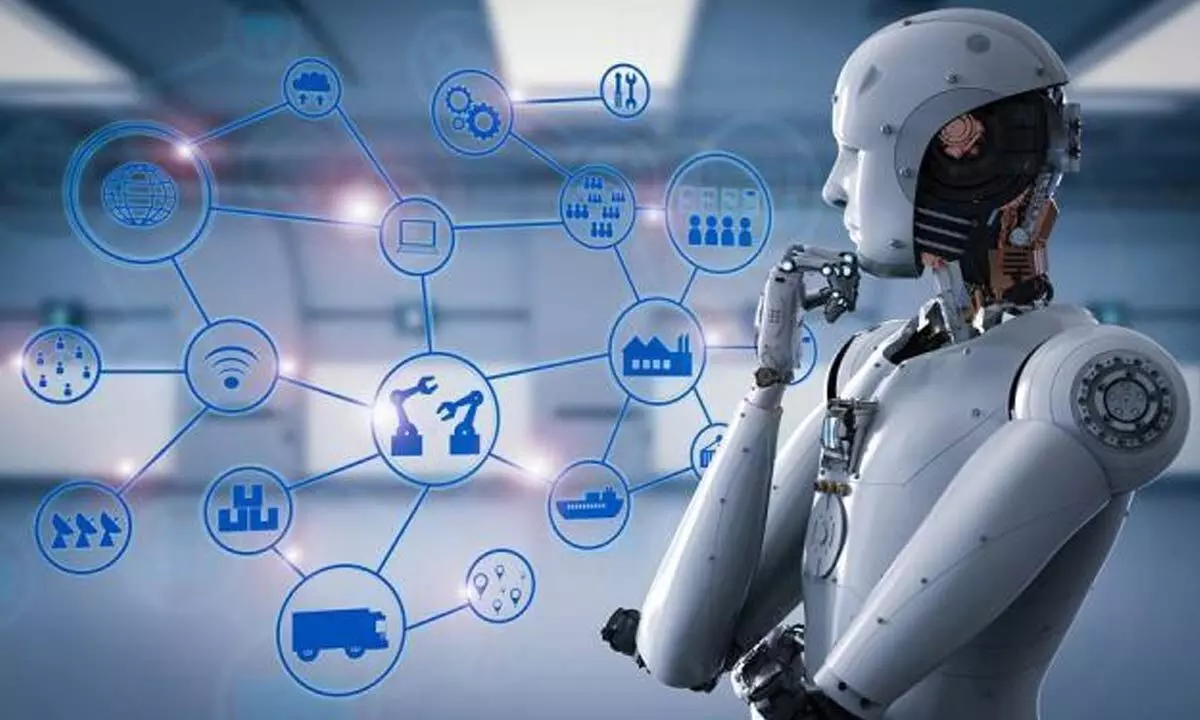How AI technology changing the face of different industries
Frome fintech to edtech to e-commerce, AI is revolutionizing the businesses
image for illustrative purpose

Artificial intelligence (AI) technology has been revolutionizing various sectors and industries across the world. Bizz Buzz spoke to some of the significant sectors business leaders where AI is making a significant impact.
Regulatory sector
The rise of AI in the regulatory landscape is significantly redefining the way regulators are enforcing the law and businesses are managing compliance obligations. Such technologies become more relevant considering the existing complex and spread compliance ecosystem with thousands of compliances and filings coupled with constant changes to the regulatory environment published across 2,233 government websites at the central, state, and municipal levels.
AI-powered platforms can analyze regulatory data submitted by businesses via various filings and digital submissions thereby supporting the regulators in real-time identification of specific non-compliances and patterns highlighting potential areas of investigation. With the help of such platforms, regulators can be more proactive and efficient in law enforcement thereby significantly eliminating the need for physical audits/inspections.
Additionally, such digital platforms support businesses in staying current and compliant (by monitoring regulatory changes in real-time), reduce the manual intervention in the creation of compliance obligation-related documents and significantly reduce the cost of doing such compliances.
Sandeep Agrawal, Director and Co-founder Teamlease Regtech, says, “Adoption of such AI-powered platforms is currently limited to Finance Ministry (ex: current GST and TDS platforms) which has significantly improved the compliance percentage amongst the businesses for finance-related compliances. Similar adoption needs to be encouraged for other Central and State regulators to facilitate end-to-end digitalization of regulatory obligations.”
Fintech Sector
AI has the potential to revolutionize the debt resolution sector by providing more accurate and efficient solutions. Manavjeet Singh, MD & CEO, CLXNS Technologies, says, “With machine learning algorithms, AI can analyze vast amounts of data and identify patterns that human experts might miss, leading to better debt management and resolution strategies.”
Travel sector
The industry moves fast and KAYAK is following along. The world’s leading search engine welcomes ChatGPT in North America, the AI-powered language model developed by OpenAI that will help people search for travel in a new way. ChatGPT will act as a virtual travel assistant, allowing for more conversational interactions with KAYAK’s search engine. Users can head to ChatGPT and ask it questions in the same way they would ask a human.
By simply typing in natural language queries, like “Where can I fly to from NYC for under $500 in April'' users will receive personalized recommendations based on their search criteria and KAYAK’s historical travel data. Additionally, ChatGPT’s ability to understand and analyze natural language helps us provide more personalized recommendations on their platform. For example, if someone asks, “I’m looking for a hotel in New York City that’s close to Central Park”, ChatGPT can understand the traveller’s specific needs and preferences and ask KAYAK to provide tailored recommendations based on that information. Overall, our integration represents a step forward in the world of travel search. By leveraging AI technology to provide more personalized and intuitive search experiences, we’re making it easier than ever for travellers to plan their dream vacations. And if you think about it, adopting AI technology makes sense for KAYAK. It’s yet another way we’re using the latest innovations (we were among the first to adopt new tech like voice assistant to meet travellers where they’re at. Thanks, robots.
Education sector
In the last decade, education technology has metamorphosed significantly, impacting education consumption in many ways. To some extent, EdTech has expanded accessibility of education through digitally-enabled classrooms powered by the internet.
Aparna Prasad, Founder of Knowledgeum Academy, says, “With internet penetration in India expected to reach 45 per cent by the end of 2025, the digitalization of education remains one of the government’s major priorities. Many e-learning portals have sprung up in response to the pandemic, and indeed beyond, creating newer pathways to a rising number of learners in online classes and courses.”
E-commerce sector
The supply chain industry is being transformed by AI, which is enabling advanced analytics, prediction, and automation capabilities. With its ability to analyze huge amounts of data, understand relationships and provide visibility, the technology can help in getting deeper insights into customer demand, identify patterns and trends to predict future demand with greater accuracy, businesses can optimize inventory levels, reduce lead times and streamline logistics operations.
Santhosh Reddy, CTO and Co-Founder, ShakeDeal says, “AI is helping to identify potential disruptions to the supply chain and mitigate risks in real-time. The industry believes that AI is a game-changer that has the potential to enhance performance, drive growth and support better decision making and we are committed to exploring the full potential of these technologies in the supply chain industry.” Overall, AI technology is transforming various sectors and making them more efficient, accurate, and productive. Its applications are expected to increase and diversify in the future.

